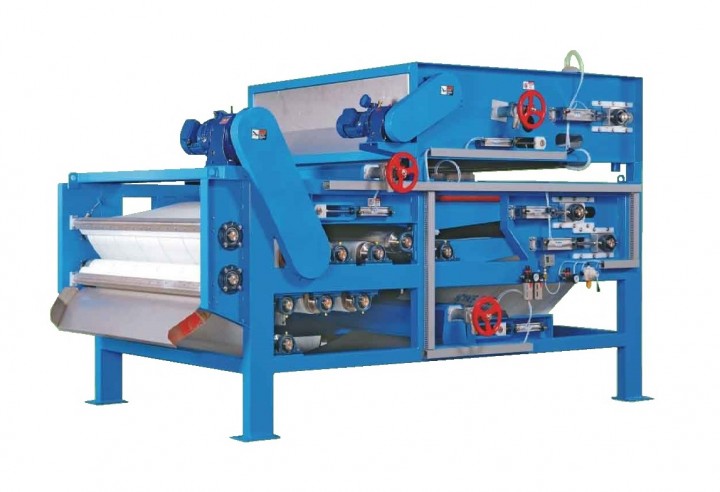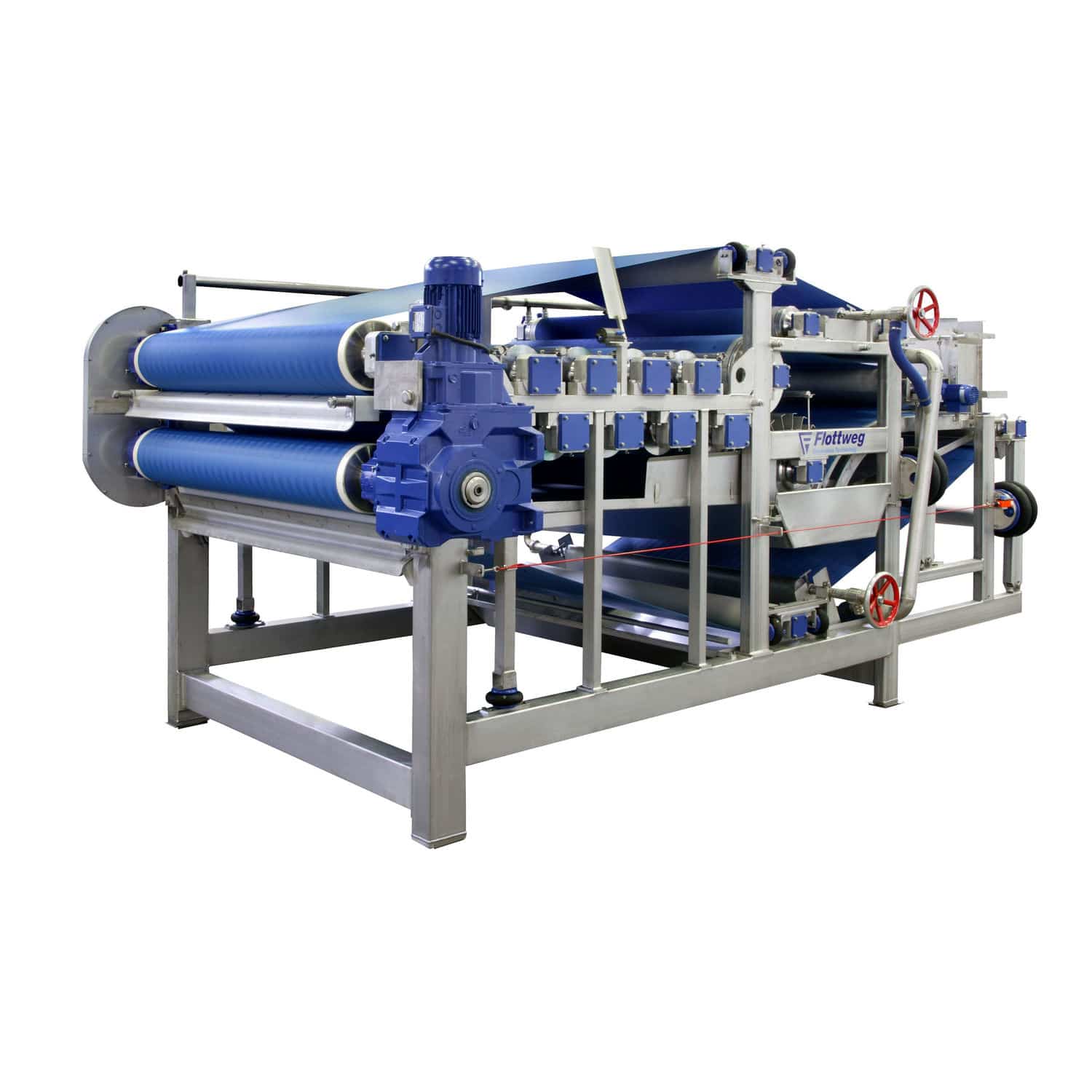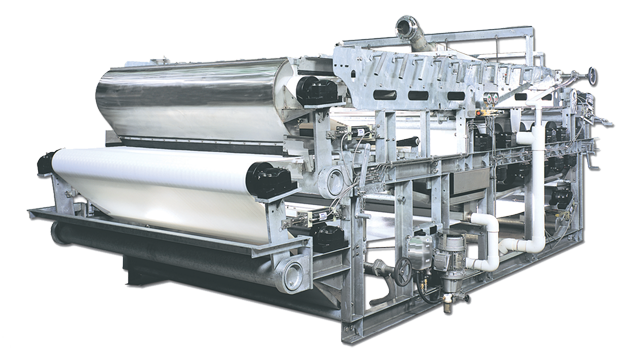Belt Press in India
The belt filter (sometimes called a belt press filter, or belt filter press) is an industrial machine, used for solid/liquid separation processes, particularly the dewatering of sludges in the chemical industry, mining and water treatment. The process of filtration is primarily obtained by passing a pair of filtering cloths and belts through a system of rollers. The system takes sludge or slurry as a feed, and separates it into a filtrate and a solid cake.
There are many physical separation processes similar to the belt filter press used for dewatering, including centrifuges, vacuum-disc filters, and the plate and frame filter press. When compared to other compression filters, belt filters use relatively lower pressures. Although centrifuges have lower moisture content, lower costs and simpler operations in coal tails processing, belt filters tend to make less noise and have much quicker start-up and shutdown times.
Belt filters are considered simple and reliable, with good availability, low staffing, easy maintenance and a long life. The belt filter is most advantageous when installed such that it is open and viewable at floor level for easier adjustment and monitoring. This is of course subject to what lighting and ventilation will allow.
The belt filter press is often used in wastewater treatment, and thus the odour of the feed sludge, volatile emissions and the chemicals used in treatment, may become a problem. One control method is to use odour-neutralizing chemicals such as potassium permanganate. However this only neutralizes odours and doesn’t affect any gases or chemicals involved. Although all problems can be controlled by enclosing the filter, the enclosure reduces essential visibility and easy access to the machine for maintenance and repairs, leading to the expensive automation of the process.
A belt filter press is also known for its high capacity throughput, as it is designed to handle excess capacity. It has low initial costs and low energy running costs, however, if throughput is less than 4 million gallons per day, the belt filter press may be less cost efficient than liquid transport, hiring a processing facility, or utilizing non-mechanical dewatering methods such as drying beds or reed beds.



